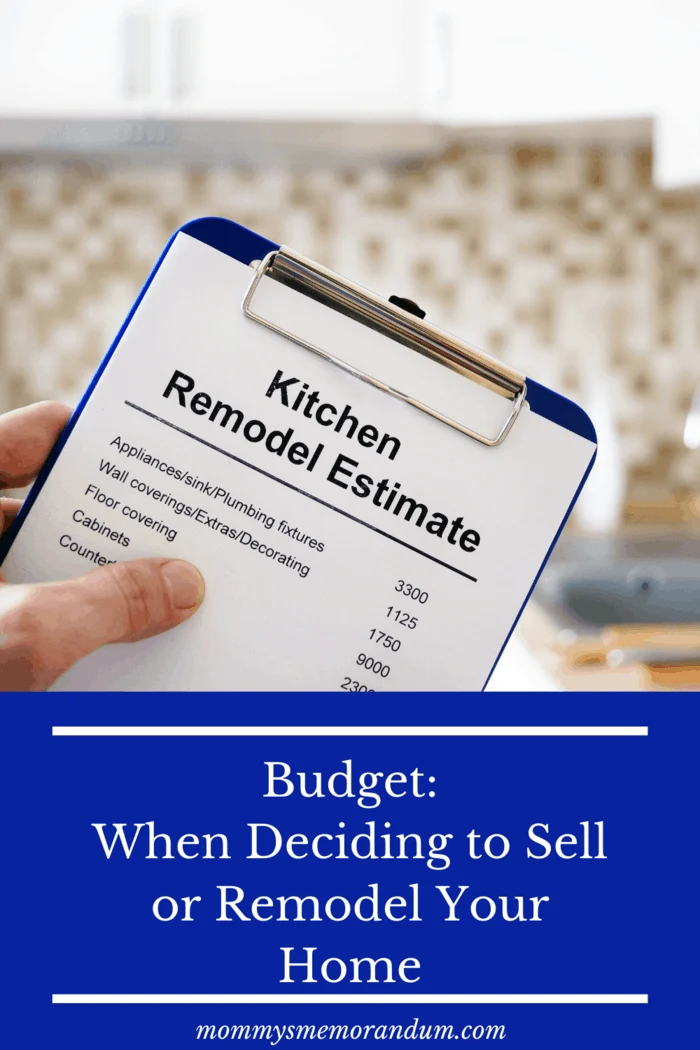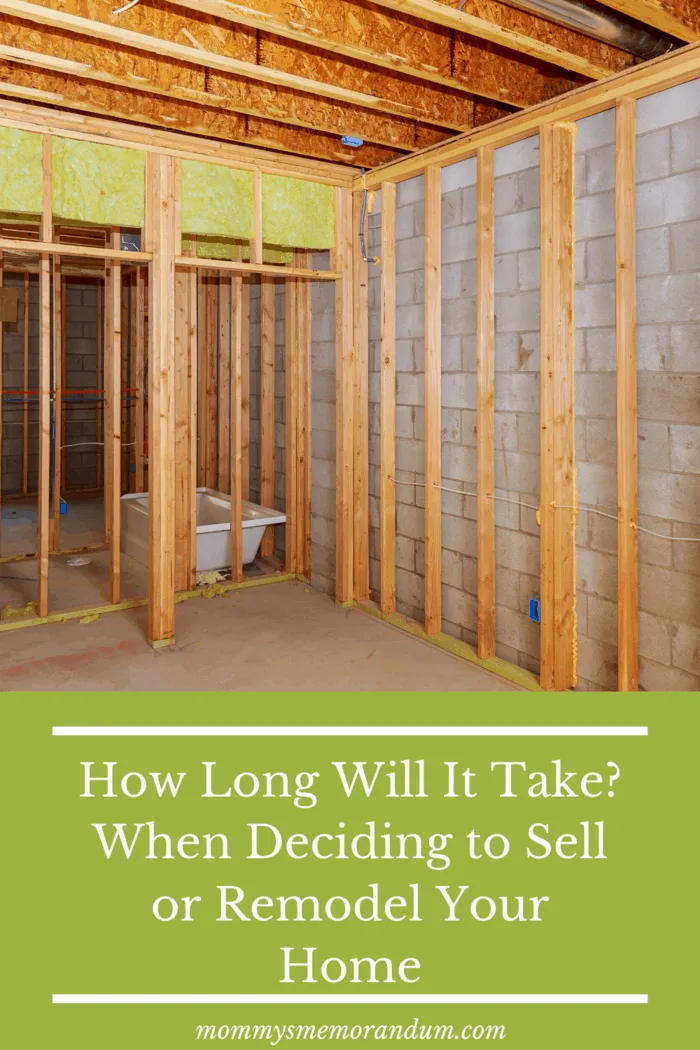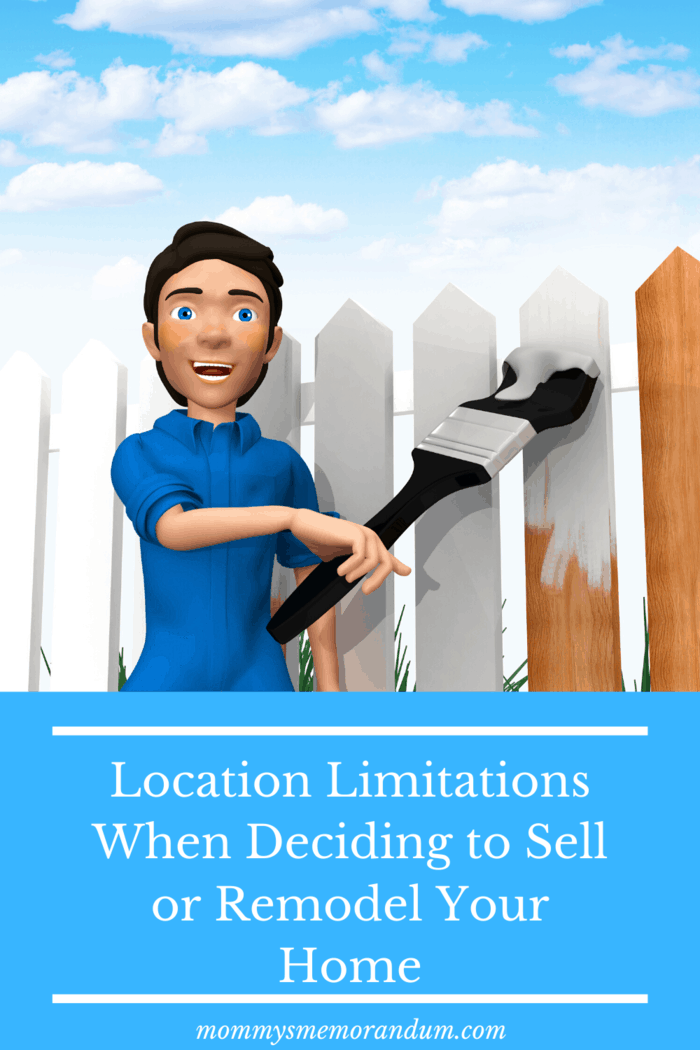After living a couple of years in the same house, you will inevitably come to a point where you seek to change. There’ll likely be two main options on the table: Should you remodel or sell your home?
The first is to comprehensively remodel the home, making much of it look and feel starkly different from how it was before.
The second is to sell the house as-is and move somewhere else, according to ibuypueblohouses.com.
Either option is a major decision that will have far-reaching implications on your finances.
To know which of the two alternatives is most suitable-remodel or sell your home, you must weigh your choice against the following factors.

6 Factors that Determine Whether You Should Remodel or Sell Your Home
1. Emotional Attachment
It’s virtually impossible to live in a place for months or years and not get some emotional attachment to it.
The space becomes deeply intertwined with your everyday routine.
Nevertheless, the depth of attachment will vary from household to household.
There’s a degree of attachment that can make selling out of the question, at least in the medium term.
RealEstate.Boston suggests you think about your close friendship with neighbors, the schools your children attend, and the proximity to entertainment centers and other amenities.
In this case, your connection would make remodeling your best alternative.

2. Remodeling Budget
If you are considering remodeling, you probably already have a rough idea of what you want the home to look like.
Even without the exact details, you have a clue of what materials you’d want.
There’s a remodeling budget for every wallet size.
What’s important is to ensure that your remodeling’s envisaged end product can be covered by the budget you can afford.
Unfortunately, many homeowners dive headlong into a remodeling project before knowing what they want.
The end result is a budget that cannot deliver their vision and, therefore, an end product that falls short of their expectations.
If you cannot afford to get the house you want through remodeling, selling might make more sense.

3. Can You Create More Room or Rooms?
Many homeowners opt to sell because they are looking for more space.
However, there may be ways you can create more space in your current home, thereby negating the need for selling.
For example, you could transform your basement, garage, and/or attic into livable space.
You can also create more rooms by reconfiguring the larger rooms, thus making a 3-bedroom house into a 4- or 5-bedroom one.
Or turning your attic into a playroom.
It will certainly cost you but will help you avoid the disruption of a move.
Work with a designer to see what new configurations can work.

4. How Long Will Remodeling Take?
When most people are talking about house remodeling, the cost and design dominate the conversation.
Yet, time is a crucial factor that can determine whether a remodel is better than a move.
An extensive renovation involves a months-long commitment in time and effort.
For instance, kitchen remodels involving installing new floors, countertops, appliances, and cabinets can take as long as six months.
And if plumbing, wiring, and ductwork have to be overhauled too, then it could take even longer.
It’s not just the time it might take to realize your dream home, but also the disruption it causes to everyday living.
If you cannot stand months of disruptive and sometimes noisy work, then perhaps selling will be your best option.

5. Location Limitations
Location is the biggest driver of property value, according to thebalance.com.
So as you plan a remodeling project, you have to remember there’s only so much you can sell the house for, depending on your neighborhood.
If you sink too much cash into the renovation, your over-improved home will not add a commensurate degree in its value.
For example, if your house is in an area with smaller and starter homes, adding a large extension or embarking on extensive renovation will not yield the expected return.

6. Return on Investment
The previous point alludes to a crucial overarching principle that should determine the cost, scale, and viability of remodeling projects—return on investment (ROI).
Find out what is the average ROI for the remodel you are contemplating.
Unless you are willing to hold out for years, most home upgrades do not translate into a higher sale price that recoups or exceeds costs.
Some renovations will recover 80-90 percent of the cost, while others will be lucky to do 50 percent.

It might make more sense to sell the house as-is and buy a new home with the design and amenities you want.
Harvard says Americans spend a staggering $400 billion annually on home renovation and repair.
Before you jump on the bandwagon, use these factors to determine whether remodeling is better than selling.
